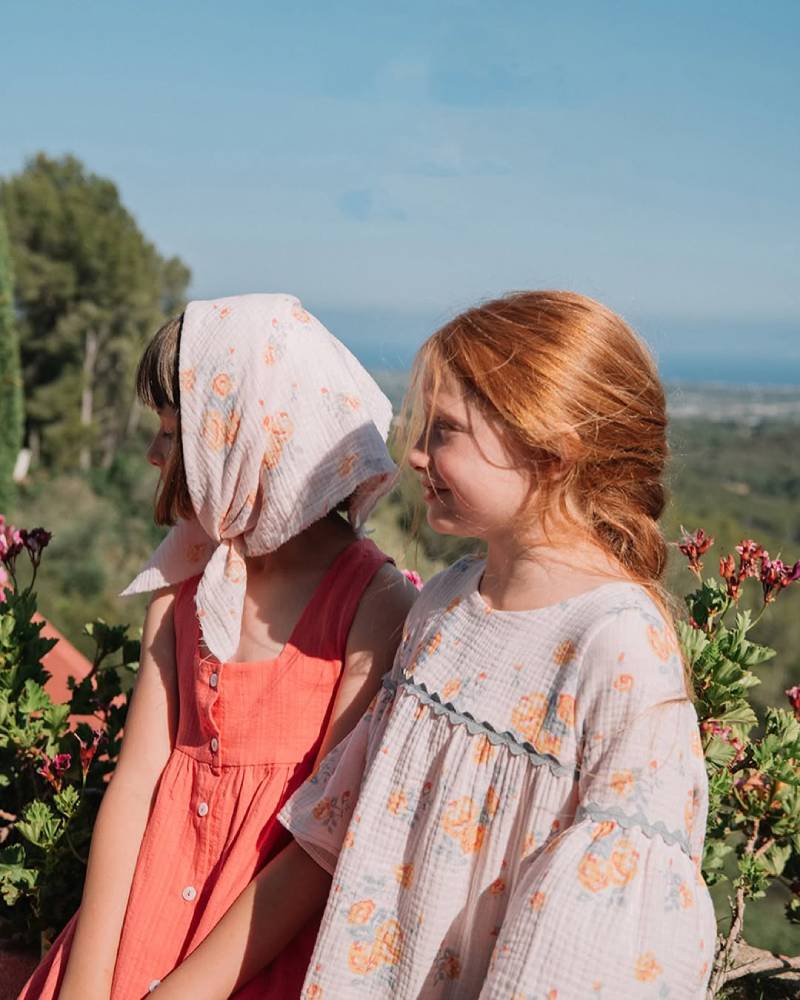Each season, we team up with the organization Promas to put French brands exhibiting at Playtime Paris and Playtime & Kid’s Hub New York in the spotlight. To learn a bit more about the brands they work with, the criteria for receiving their support, and how Promas came to be, we sat down with the Director of the Children’s Fashion Division, Christine Maillet. In this exclusive interview, discover some of the ways Promas works to accompany French brands as they grow, what Christine thinks of the current kidswear market, and how Promas’ relationship with Playtime started. Grab a baguette and let’s dive right in!
My name is Christine Maillet. I began my career at the French Federation of Men’s Clothing Industries, and have since moved to Promas (the men’s clothing promotion office) who focuses primarily on international development. At Promas, I have been tasked with supporting brands with their exports.
In June 2003, we integrated the kid’s fashion sector into Promas following the closure of the children’s clothing federation. I was put in charge of the international development of this sector.
Up until then I had only worked in the men’s sector, meaning I had to start from scratch. I began by identifying French brands in the kid’s market at events in Brussels, Florence, and London. Once Playtime Paris began, it was also an excellent resource to continue my research into the French kidswear market. At the time, the French market was mainly represented by well-known brands like Bonpoint, who had been in business for 30 years. Then, we started to see new, independent brands emerging to offer products that hadn’t previously been available in this sector.
Promas supports French brands by organizing operations aimed at developing their exports. There are several ways we do this. We support them by helping with the costs of exhibiting at trade shows like Playtime. Working with content creators or press partners like MilK Magazine to develop their digital promotional actions is another way we support them. We have also hosted events with other federations, for example, one called Welcome On Board (WOB) which featured conferences and a round table. WOB will be taking place again this November.
Recently, we have started offering brands subsidies as part of a “digital amplification plan” that allows them to boost their e-commerce. And, to finish, we have a dedicated CSR (Corporate Social Responsibility) component offered in the form of coaching for companies. These supports offer a real boost for their business, with our primary goal being to promote French brands.
For my part, being in constant contact with the brands allows me to follow their development. It helps me take the pulse of the market, and to adapt our way of supporting them by implementing actions that respond to their needs.
 Risu.Risu
Risu.RisuTo benefit from our support, brands must meet several criteria. First, they must pay the DEFI clothing tax. Their collections must consist of more than 30% woven products. They must have been in business for at least one year, and have a first year turnover of 50,000€. These criteria then evolve following the brand’s 4th year of existence.
Thanks to the help of Promas, brands can benefit from financing of up to 75% of a booth price. This is a significant advantage that allows French brands to expand internationally. This, in turn, helps them to meet with their customers and to attract new buyers from around the world. For brands just starting out, this is a considerable asset. It allows them to test new markets while minimizing their financial risks.
The brands that we support are mainly small businesses like Studio Bohème, Bachaā, Les Lutins, or Risu.Risu. Our primary goal is to see them grow. We also work with larger brands like Pyrenex and Hartford.
 Studio Bohème
Studio BohèmeI visited Playtime Paris for the first time at its very first edition. The show was held on rue Saint-Merri with just 49 exhibitors. At that time, we couldn’t yet offer financial support, but Playtime was an excellent recruiting ground for us. It was there that I discovered a number of new brands, some of which are still around today and continue to participate at the event. Since then, I have continued to visit each edition, and we have finally been able to set up grants to help brands participate at the trade shows. Since the beginning, it’s been a loyal relationship between Promas and Playtime!
The kid’s market is more complicated than it was in the past, and the competition is fiercer. French brands are often small, and not very well prepared for export. This is where we come in, offering support through overseas missions, including before, during, and after the mission, as well as financial support. The geopolitical situation today is unclear in terms of exports as well, but we are still seeing other markets emerge like Colombia and Mexico. Both of them are tax-free, as well as certain markets in Asia like Vietnam.
Another factor that has recently come into play is the evolution of the second-hand market. Brands have to adapt and offer an internal option for second-hand products to meet the current market’s needs.
It’s essential that brands today are responsive, structured, and agile to meet the demands of each market. They need to be ready and able to adapt to the many shifts that are constantly taking place.
There have been beautiful success stories since my arrival at Promas. I have had the chance to see brands like Louise Misha grow, as well as Emile et Ida who has notably expanded through their own stores. These are two of the success stories that come to mind. From the digital point of view, the lifestyle brand Lucas du Tertre has stood out with the development of their e-commerce.
Thank you to Christine for sharing these insights into how Promas works and her current view of the market! To see some of the other amazing French brands that have been supported by Promas at past editions of The Big Small Shows, check out our previous articles here and here.
French or not, brands can fill out their applications for the summer shows here!